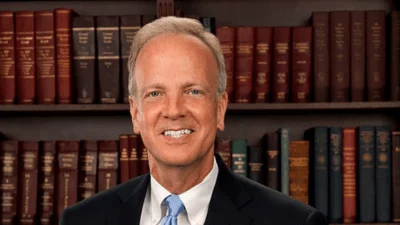I am pleased we are holding a hearing to identify solutions to address opioid abuse and dependence specifically in the Medicare space. Although overdose rates are highest for people 25 to 54, this public health emergency also affects Medicare beneficiaries.
Everyone in this room has a family member or knows someone directly impacted by the opioid epidemic. In my home state of Massachusetts, there were 2,094 confirmed opioid-related overdose deaths in 2016.
I thank my neighbors to the north, Governor Scott and his Health Secretary Gobeille, for joining us today. We share a border and also that means we share a common challenge fighting the opioid crisis. The Massachusetts Governor Charlie Baker, like Governor Scott, is working to employ all tools in this fight ranging from expanding Medicaid coverage to provide treatment availability, data analytics and treat addiction while stabilizing and supporting families.
Opioid abuse and related deaths takes a toll on our communities and our families. There is no one single cause, and no one single solution.
Expanding Medicaid under the Affordable Care Act to low-income working Americans who previously could not afford insurance has been the most significant step in recent years to stem the tide of the opioid crisis, providing access to critical substance abuse and mental health services that previously were prohibitively costly.
We also need to look to Medicare beneficiaries’ ability to access treatment, as oftentimes providers (or treatment options) aren’t available to meet the need. We know that there are significant gaps in coverage and access under Medicare. For example, Medicare does not cover Outpatient Treatment Programs (OTP) that provide comprehensive opioid addiction treatments nor does Medicare cover methadone for addiction, which is often the treatment of choice for longer-term addicts. I recently introduced legislation that would allow methadone to be covered for outpatient services under Medicare.
We also need to work with our partners to identify best practices. Late last week, I sent a letter along with Energy and Commerce Ranking Member Pallone to 14 Medicare plans to ask them to compile their best practices to address opioid related disorders. Evidence based, tested activities that are helping patients turn the corner will help us design sound policies. I look forward to the plan responses, and I thank Dr. Paz from Aetna for joining us today to share what his plan is doing.
We also need to explore how substance abuse is affecting children and families. This epidemic is fueling a rise in caseloads for child and adult protective services, and for foster care, as caregivers battle addiction. I am pleased that our Committee has worked together, on a bipartisan basis, on legislation to support families and help them keep children safe who would otherwise be in foster care safe at home. I hope we can continue this partnership, because we still have much work to do.
I am concerned the benefit cuts that the Republican leadership plans for later this year would undermine these efforts. For example, the Social Services Block Grant (SSBG) is the largest source of federal funding for child protective services and the only major source of federal funding for adult protective services in most states.
We clearly have work to do this year. Congress can have a positive role to play in partnering with states to provide resources, eliminating federal barriers to treatment and access, and supporting families and law enforcement. I look forward to addressing these issues this year.








